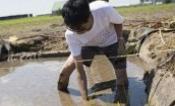
Illinois university rice plot could help yields globally
To date, there has been no reason to use the words rice paddies and Illinois in the same sentence, but researchers at the University of Illinois have put the two together with hopes of making an impact on global supplies of the popular grain.
By: Steve Binder | Farm World

Turbo-Charged Photosynthesis Could Make Crops Grow Faster While Using Fewer Nutrients
One of the great ironies of evolution is that almost all known life depends on one of the slowest and most inefficient enzymes on Earth. Now scientists have taken the largest step towards transferring a work-around from cyanobacteria into a plant.
By: IFLScience

Kampf gegen Hunger Satte zehn Milliarden
Die Weltgemeinschaft steht vor einer gewaltigen Aufgabe: Bis 2050 muss sie fast doppelt so viel Nahrung produzieren wie heute - ohne zusätzliche Ressourcen. Drei Forscher erklären, wie das gelingen könnte.
By: Julia Merlot | Spiegel Online
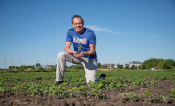
Beyond the basics of photosynthesis
New research shows that slow adjustment of crops to changes in light could be reducing yields by 15% to 20%.
By: Sierra Day || Prairie Farmer

Canola establishment under the scope
With investment from the Grains Research & Development Corporation (GRDC), members across CSIRO, including RIPE’s Jose Barrero, are focusing on genetic solutions to help canola breeders.
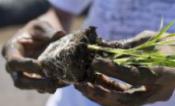
Boosting photosynthesis to feed the world
In the next 50 years, the human population and global affluence—both major drivers of agricultural demand—are only expected to increase; researchers estimate that food production will need to grow by 60 to 120 percent by mid-century to keep pace.

Illinois experts share: Emerging technologies and the role of GMOs
A discussion on GMOs and their role within our food systems. During a roundtable conversation, experts will share details of genetic modification, including how it is developed, tested and regulated to help ensure food safety, and why farmers and scientists view this as another effective tool in the toolbox to help grow and raise our food.
Organized by: Illinois Farm Families

Bill Gates wants to hack photosynthesis
A new video highlights some efforts Gates is funding to make plants grow faster.
By: Ben Paynter || Fast Company
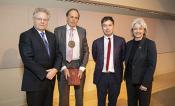
Stephen Long invested as the Stanley O. Ikenberry Chair Professor of Plant Biology and Crop Sciences
Stephen Long has been invested as the Stanley O. Ikenberry Chair Professor of Plant Biology and Crop Sciences, one of the most distinguished honors at Illinois.

RIPE researchers play big role in SEB Birthday Grant event
One hundred years of experimental biology, impactful research findings, innovative approaches, developmental workshops, and leadership in STEM has led to the SEB 2023 centenary conference. The Society for Experimental Biology (SEB) is celebrating its 100th anniversary throughout 2023, and in April announced 10 recipients of the SEB 100th Anniversary Birthday Grant. Successful applicants were awarded £500 to plan a celebration event at their own institute. Amanda Cavanagh, RIPE team member and Lecturer in the School of Life Sciences at the University of Essex, was a recipient of one of the birthday grants. She organized Celebrating Plant Science, an early career researcher event on May 24, 2023 at Essex.

GMO safety report
RIPE researcher Don Ort discusses public perception of GMOs in the wake of a recent report by the National Academies of Science, Engineering and Medicine, which states GMOs are safe.
By: 21st Show
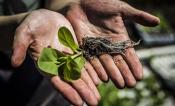
Genetically modified 'shortcut' boosts plant growth by 40%
Scientists in the U.S. have engineered tobacco plants that can grow up to 40% larger than normal in field trials.
By: Matt McGrath | BBC News

New greenhouse coming to U of I's Research Park
A new state-of-the-art greenhouse is coming to the University of Illinois' Research Park.
By: Haydee Clotter || Illinois Fox News

Two RIPE researchers elected to AAAS Fellowship
Two RIPE researchers from the USDA-ARS and Australia’s CSIRO have been elected 2020 Fellows of the American Association for the Advancement of Science (AAAS).
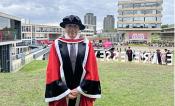
Long receives honorary doctorate from University of Essex
“I have been lucky enough to receive a few awards throughout my career, but none is more special to me than this.” - Steve Long during his commencement address to the summer class of 2023 from the University of Essex. Long was presented with an honorary doctorate as part of the ceremony.
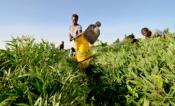
Research shows how to grow more cassava, one of the world’s key food crops
What root vegetable is toxic eaten raw but a hunger quencher when cooked, and provides both tapioca flour and the pearls in bubble tea? This question probably will stump many Americans, but is easy for people in the developing world.
By: Stephen P. Long | Amanda P. De Souza | Lynnicia Massenburg || The Conversation
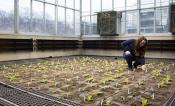
Reclaiming lost calories: Tweaking photosynthesis boosts crop yields
Improving crop yields to grow more food on less land is not a new challenge. But as the global population grows and diets change, the issue is becoming more urgent.

Soybeans and other crops are hurting for light, but this research fights shadows
Scientists at RIPE have developed a new mathematical computer model to understand and measure how much soybean yield is lost due to light fluctuations on cloudy versus sunny days.
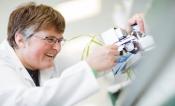
RIPE Scientist Tracy Lawson Announced as New Vice President of the SEB
The Society for Experimental Biology recently announced that Dr. Tracy Lawson has been appointed as the new Vice President of the SEB.

In TED Talk, Long describes three changes to photosynthesis, each boosting crop yields 20% or more
The full recording of RIPE Director Steve Long’s TED Talk, “Can we hack photosynthesis to feed the world,” about how three changes to photosynthesis could help reduce food insecurity and the amount of CO2 in the atmosphere is now available.
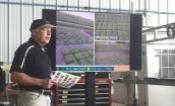
RIPE project shows off progress in photosynthesis research
RIPE Project Associate Director Don Ort discusses field trials that have shown increased biomass in tobacco plants from genetic modification of photosynthesis.
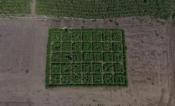
Genetic modification turbocharges photosynthesis and drastically improves crop growth
“That’s our goal, to make a crop that has a solution to all photosynthetic problems,” study author Amanda Cavanagh, postdoctoral researcher at the University of Illinois, told Gizmodo.

Rice genetically engineered to resist heat waves can also produce up to 20% more grain
Deputy Director Don Ort comments on a photosynthetic breakthrough in rice.
By: Erik Stokstad || Nature

Miss our Crawford Fund Medals Presentation? Now available with Dr Brian Keating and Dr TJ Higgins
The Crawford Fund recently celebrated their Medal Awardees from 2020 and 2021, Dr. Brian Keating and Dr. TJ Higgins for their enduring contribution to global food security.

What can researchers learn about ecosystems and the environment during the total solar eclipse?
Scientists across the U.S. and Mexico are engaging in a one-day data-gathering operation to record how the 2024 total solar eclipse affects various aspects of life on Earth. RIPE's Carl Bernacchi and his colleagues will focus on atmospheric and ecosystem-scale responses to the eclipse. Bernacchi spoke with News Bureau life sciences editor Diana Yates about what is planned and how it fits into the bigger research effort.
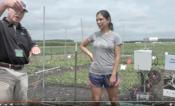
Video: 2017 Food & Fuel Field Day
Local ag communicator Stu Ellis covered the 2017 Food & Fuel Field Day that showcased RIPE's work to our friends, industry partners, and the media.
By: Stu Ellis | WCIA3 News
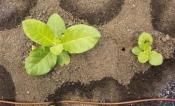
Plant scientists have found a way to 'hack' photosynthesis. Here's why that's a big deal
If the preliminary research pans out, we may have a new way to feed the world's growing population.
By: Denise Chow | NBC News MACH
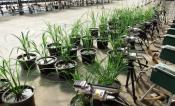
Harnessing Light Energy: Scientists look at how photosynthesis could boost yields of rice cultivars
Scientists look at how photosynthesis could boost yields of rice cultivars.
By: Seed Today

RIPE’s “More than an internship” mentorship program receives inaugural IGB DEI award
The Realizing Increased Photosynthetic Efficiency (RIPE) project’s communications team was one of two recipients in the inaugural year of the IGB Diversity, Equity, and Inclusion (DEI) Awards.
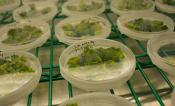
Reduced plant growth found in double mutants by RIPE researchers
RIPE researchers from Louisiana State University experimented with removing two proteins vital to photosynthesis from a plant to see how it would affect crop growth. Their findings were published in Frontiers in Molecular Biosciences.
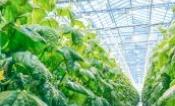
U of I researchers tackle world hunger
A research team from the University of Illinois Urbana-Champaign (U of I) is working on a project that might eventually change the world: tackling the growing issue of world hunger through increased crop yields.
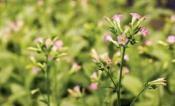
Improve photosynthesis and increase crop yield
Bioengineering corrects defects in photosynthesis in tobacco and increases crop yield by 40%.
By: Katherine Bourzac | Chemical & Engineering News (C&EN)
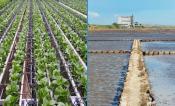
8 innovative drought solutions that we can count 0n
A review on anti-drought measures that are in development and in actual use.

Hacking Photosynthesis: Bioengineers race to meet global food demands.
“Hacking Photosynthesis” from Codon Magazine features the research of different bioengineers around the world who are racing to meet global food demands and highlights RIPE’s work to amp up photosynthesis.
By: Niko McCarty || Codon Magazine
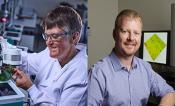
NSF, international partners to invest nearly $10M in ASAP Global Center
RIPE principal investigators Tracy Lawson and Andrew Leakey have been selected to lead a new NSF-funded global center. The Alliance for Socially-acceptable & Actionable Plants (ASAP) will work to provide synthetic biology solutions to produce high-energy, water-use-efficient crops.
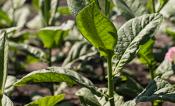
Rebooting food: Finding new ways to feed the future
Welcome to the brave new world of food, where scientists are battling a global time-bomb to find new ways to feed the future.
By: Thin Lei Win | Reuters
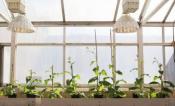
Gene engineers make super-size plants that are 40% larger
Researchers hope to create a new “green revolution” by improving photosynthesis.
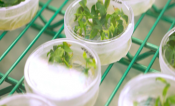
Here is ultraphotosynthesis!
It's done: by crossing plants and intervening on their genes, biochemists have managed to overcome billions of years of natural selection.
By: Pauline Fricot || Science & Vie

THOUGHT LEADERS: Future-Proofing Food Crops in a Warming Climate
AZoCleantech speaks to Amanda Cavanagh from the University of Essex about the future of agriculture in a changing climate and how bypassing a photosynthetic glitch could help us to future-proof our food crops.
By: Laura Thomson || AZo Cleantech

Rubisco's role in global food security
In an invited Tansley Review, RIPE researchers discuss strategies to increase Rubisco content as part of short- and long-term efforts to meet the growing global food demand.
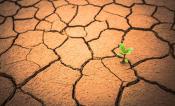
Genetic engineering innovation makes plants more efficient at using water
The world population is growing rapidly, and that signals big challenges when it comes to how best to feed and fuel everyone our planet has to support. Already agriculture uses 90 percent of the world’s freshwater supply, but this will need to be stretched even further as Earth’s population increases.
By: Luke Dormehl | Digital Trends

U.S. researchers find novel way to produce bigger plants
Photosynthesis holds the key to the air we breathe and the food we eat. But it’s not as efficient as it could be.
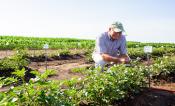
Agriculture futurist: Don Ort
Meet Donald (Don) Ort—Robert Emerson Professor at the University of Illinois—whose work is dedicated to increasing yield potential through improving crops' photosynthetic efficiency.

Unique experimental plant growth facility secures £1m grant
This week, the Wolfson Foundation pledged £1 million to support a new state-of-the-art indoor crop growth facility, to be led by RIPE's Professor Tracy Lawson, at the University of Essex.

Ainsworth and Carmo-Silva tapped to lead internationally acclaimed RIPE project
Lisa Ainsworth has been promoted to Director of the RIPE project and Elizabete Carmo-Silva has been chosen as Deputy Director.

The 12 key science moments of 2016
Our panel of leading scientists pick the most significant discoveries and developments of the year – from the Zika virus to the planet Proxima B – and a surprising secret of marriage.
By: Sue Hartley | The Guardian
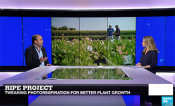
The high-tech food chain
From farmlands to kitchens, technology is playing a pivotal role in ensuring better yields and disease-free food.
By: France 24
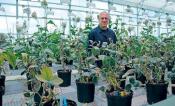
New facilities support photosynthesis studies
Last year, researchers focused on improving yields by enhancing the effectiveness of photosynthesis saw tobacco and soybean yield increase by 20% over conventional varieties.

Did Illinois Just Unlock the Secret to Solving World Hunger?
Ending hunger worldwide may sound like a pipe dream, but researchers at the University of Illinois are making great strides in turning that wish into a reality through the genetic engineering of plants.
By: Tyne Morgan || AgWeb
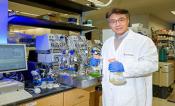
Study: Microalgae and bacteria team up to convert CO2 into useful products
Scientists have spent decades genetically modifying the bacterium Escherichia coli and other microbes to convert carbon dioxide into useful biological products. Most methods require additional carbon sources, however, adding to the cost. A new study overcomes this limitation by combining the photosynthetic finesse of a single-celled algae with the production capabilities of the bacteria E. coli.
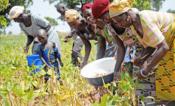
Plagued by pest, African farmers may soon have access to insect-resistant GMO cowpeas—for free
Nigeria is poised to become the first country to release a genetically modified variety of insect-resistant cowpeas to farmers.
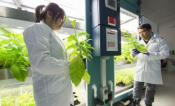
Algae could be crucial to boosting crop yields
Scientists have made the break through, into the way plants convert carbon dioxide, water, and sunlight into energy.
By: Eddie Summerfield | 2GB 873 AM
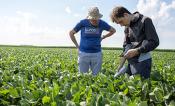
Episode 024: Improving Photosynthesis with Dr. Steven Burgess
Meet plant biologist Dr. Steven Burgess in this podcast and find out the skills needed to be a scientist.
By: NGSNavigators
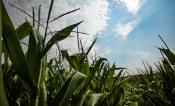
OVER THE COLES: Dynamic photosynthesis model simulates 10-20 percent yield increase
A team from the University of Illinois has developed a model that treats photosynthesis as a dynamic process rather than an activity that either is or is not happening.
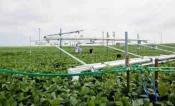
Midwest Heat Waves May Cook Crops—and Fry Harvests
Climate change–induced temperature extremes could wilt corn and soybean yields, potentially causing ripples to food supplies across the world.
By: Susan Cosier || NRDC

To feed the world, we may need to hack photosynthesis
One of the biggest challenges of the 21st century will be figuring out how to feed our rising global population. Now, some scientists are making the radical claim that growing more food won't be enough—we literally need to hack photosynthesis.
By: Maddie Stone | Gizmodo
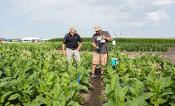
Can better photosynthesis help feed the world?
Plant researchers have been thinking about using improved photosynthesis to increase crop yields for decades, but now that goal is almost within reach.
By: Erin Zimmerman | Undark

UK aid partners with Gates Foundation to tackle global food insecurity
UK aid is tackling global food insecurity through a new project with the Bill & Melinda Gates Foundation.

RIPE's Yong-Su Jin honored as University Scholar
Yong-Su Jin, a professor of food science and human nutrition, is among the five University of Illinois Urbana-Champaign professors who have been named University Scholars in recognition of their excellence in teaching, scholarship, and service.
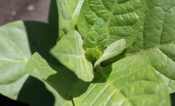
Resisting Climate Change with Photosynthesis Modified Plants
The heat is on: Bioscription's recent article about science’s mission in “resisting climate change with photosynthesis modified plants” highlights RIPE & our research done to adapt crops to warmer growing season temperatures.
By: SterlingAdmin || Bioscription
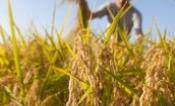
The plan to feed the world by hacking photosynthesis
With the world population projected to soar past the 11 billion mark by 2100, we’re going to need to find some creative new ways of putting food on the table. The latest science-powered plan to feed the world? Hacking photosynthesis.
By: Maddie Stone | Gizmodo

Reengineering photosynthesis for adaptation to global climate change
Donald Ort's area of expertise lies in the area of photosynthesis and the ability to reengineer it to be adapted for global climate change and to improve its efficiency in agricultural situations.

Research Park to welcome new greenhouse
Representatives from Illinois and the Bill & Melinda Gates Foundation will break ground on a new, state-of-the-art greenhouse.
By: WCIA News
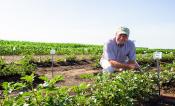
Donald Ort awarded the Charles Reid Barnes Life Membership Award by ASPB
The Charles Reid Barnes Life Membership Award from the American Society of Plant Biologists (ASPB) recognizes significant contributions to plant biology.

PBS NewsHour special features ACES faculty and spaces
“Feeding the world has never been an easy job, but on a warming planet hurtling toward 10 billion inhabitants, the challenges are growing faster than the crops — agriculture is at a tipping point,” said PBS NewsHour host Miles O’Brien to kickoff a special “Tipping Point” Agriculture on the Brink” episode that features two RIPE researchers.

GMO Labeling
RIPE Director Steve Long discusses the recent U.S. GMO labeling bill on the 21st Show.
By: 21st Show
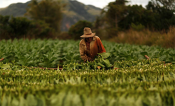
Breakthrough in plant engineering could boost productivity, feed millions more
The yield of many staple crops could be boosted by 40 percent by a new process that adjusts the way they turn sunlight into energy.
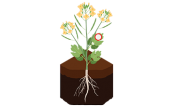
How we’ll reengineer crops for a changing climate
Genetic changes to food crops can’t solve all the problems associated with climate change, but they can help.
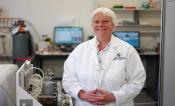
Professor Susanne von Caemmerer awarded the Suzanne Cory Medal
ARC Centre Deputy Director Professor Susanne von Caemmerer was recently awarded the Inaugural Suzanne Cory Medal by the Australian Academy of Science.
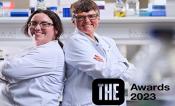
THE Awards shortlist - RIPE
The University of Essex nominated RIPE for the The Higher Education Awards: International Collaboration of the Year. On September 7th it was announced that RIPE made the shortlist of nominees, and would be featured as part of the awards ceremony in early December.

Cloudy days cost yield until scientists hacked photosynthesis
Throughout the growing season seemingly benign clouds pass over millions of acres of crops and inadvertently rob plants of their productivity, costing untold bushels of potential yield. Researchers recently reported in the journal Science that they have engineered a solution and increased the productivity of a crop in the field by 14- 20 percent—they believe this fix could be applied to staple food crops to help meet future global food demands.
By: Johannes Kromdijk | Katarzyna Głowacka | Stephen Long || The Science Breaker

Fixing a flaw in photosynthesis could massively boost food production
Intelligent design has triumphed where evolution has mostly failed. Biologists have boosted the biomass of tobacco by around 40 per cent by compensating for a fundamental flaw in photosynthesis.
By: Michael Le Page | New Scientist
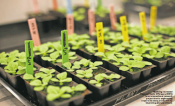
Green Genes: Agronomists are engineering DNA to save some foods from extinction
Climate change feels like an unprecedented global challenge. But the truth is, humanity has been here before — approximately 11,000 years ago. That’s when the last Ice Age ended.
By: Matt Alderton || USA Today

RIPE Director Steve Long Announced as Expertscape’s ‘World Expert’ in Climate Processes
RIPE Director Stephen P. Long was announced as Expertscape’s World Expert in Climate Processes, placing him in the top 0.1% of scholars writing about Climatic Processes over the past 10 years.
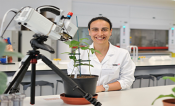
Recent review highlights key new insights in Rubisco regulation to enhance crop productivity
RIPE researcher Elizabete Carmo-Silva and others have spent decades working on ways to better regular rubisco and improve its efficiency. The highlights of that research, including the knowns and key unknowns, were published in a recent review.
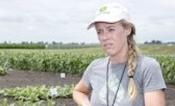
UI’s RIPE agriculture project aims to tackle growing problem
According to the U.N. Food and Agriculture Organization, farmers will need to produce 70 percent more food by 2050 to feed an estimated 9.2 billion people.That's a problem, said Donald Ort, associate director of the RIPE project at the University of Illinois, which is exploring ways to meet this challenge.
By: Ben Zigterman | News-Gazette
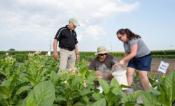
Scientists tweak photosynthesis and boost crop growth by 40 percent
Without photosynthesis, life as we know it wouldn't exist on earth.

Coronavirus restrictions closed Canberra universities, and it's affecting industries around the world
Tory Clarke shares how COVID-19 has impacted her work on the RIPE project at The Australian National University.
By: Niki Burnside || ABC News

Her Royal Highness, The Princess Royal, shines a light on women’s empowerment and ending extreme poverty
RIPE Director Stephen Long was invited to discuss the RIPE project with Her Royal Highness, The Princess Royal.

Leakey named Michael Aiken Chair at Illinois
RIPE PI Andrew Leakey was recently named the Michael Aiken Chair at the University of Illinois Urbana-Champaign. He was asked to describe how the honors will affect his work and career.
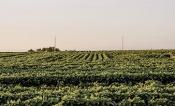
To feed the world, improve photosynthesis
By reworking the basic metabolism of crops, plant scientists hope to forestall devastating food shortages.

RIPE Researcher Lisa Ainsworth honored with NAS Prize
Elizabeth (Lisa) Ainsworth will receive the 2019 NAS Prize in Food and Agriculture Sciences.

Inspirational women in STEM and tech: “Be True to Your Team” with Dr. Chavonda Jacobs-Young
U.S. Senior Executive scientist Dr. Chavonda Jacobs-Young explains that being true to one's team helps to build an atmosphere of trust by acting authentically and holding each other to high standards.
By: Penny Bauder || Medium

Celebrating Australians in International Agricultural Research
TJ Higgins was awarded the 2021 Crawford Fund Medal for his work developing GM insect-resistant cowpeas, now approved and being grown by smallholders in Nigeria and Bangladesh.
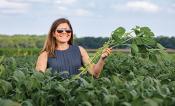
For two decades, Ainsworth has helped shape climate change research at SoyFACE
Lisa Ainsworth, the head of the USDA ARS Global Change & Photosynthesis Unit at SoyFACE, has left an indelible mark on the advancement of crop resilience to climate change.
45 million dollars given to U of I research group
Researchers at the U of I are trying to end world hunger and they just got 45 million dollars to help them do it.
By: Jennifer Jensen | WCIA3 News
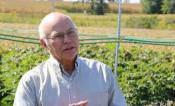
Wired In: Donald Ort
Wired In: Meet Donald Ort, the Robert Emerson Professor of Plant Science and Crop Sciences at the University of Illinois.
By: Paul Wood | The News-Gazette

Gene manipulation using algae could grow more crops with less water
Enhanced photosynthesis holds promise of higher yields in a drought-afflicted future.
By: Fiona Harvey || The Guardian
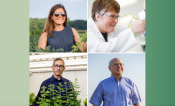
Four RIPE researchers recognized on 2022 ‘Highly Cited’ list
Four RIPE researchers are amongst 6,938 researchers around the world recognized by Clarivate as Highly Cited Researchers.
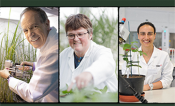
Three RIPE researchers recognized on 2024 ‘Highly Cited’ list
RIPE’s Steve Long, Tracy Lawson, and Elizabete Carmo-Silva were all selected to this year’s Clarivate Analytics Highly Cited Researchers list, meaning they rank in the top 1% of cited scientists in their fields in the last decade.
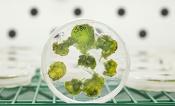
With an eye on hunger, scientists see promise in genetic tinkering of plants
A decade ago, agricultural scientists at the University of Illinois suggested a bold approach to improve the food supply: tinker with photosynthesis, the chemical reaction powering nearly all life on Earth.
By: Justin Gillis | New York Times

RIPE project aims to help farmers grow more with less
Lab breakthroughs could lead to greater crop production, prepare for future population growth.
By: Daniel Grant | Farmweeknow.com

We Can Grow 60% More Food By Hacking Photosynthesis
Hacking photosynthesis could grow up to 60% more food, on the same land we use today, according to an international team of researchers.
By: Amanda Winkler || Freethink
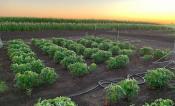
Can we make photosynthesis more efficient?
RIPE Director Steve Long joined NPR’s The 21st Show to talk about what RIPE is doing to increase photosynthetic efficiency in crops and how it could help fight a climate-induced food crisis.
Produced by: Ryan Andrew Wilde || The 21st Show

RIPE 2024 Top Stories of the Year Countdown
During the week between Christmas and New Year’s, the RIPE social media pages counted down the top five stories of the year. See the countdown in its entirety here.
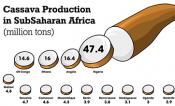
Cassava breeding could impair yield by 20 per cent
Breeding African cassava cultivars for improvements such as pest and disease resistance could impair their yield potential, a study suggests.
By: Paul Adepoju || SciDevNet
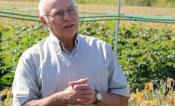
How to feed the world by 2050? Recent breakthrough boosts plant growth by 40 percent.
Recent advances to address hunger through agricultural discovery will be highlighted at this year’s annual meeting of the AAAS.

After 2020: Thoughts on moving forward in a new era
Professors from the University of Illinois share thoughts on moving forward in a new era in the LAS news magazine.
By: Dave Evensen || College of Liberal Arts & Sciences

Plant Biotech, the Underrated and Underfunded Environmental Tool
To improve environmental outcomes in agriculture, the 2023 Farm Bill needs to prioritize plant breeding and biotech research.

RIPE 'hot potato' research appears in Scientific American
RIPE's Katherine Meacham-Hensold was interviewed for an article in Scientific American about her research looking at shortcutting the photorespiration process in potato.
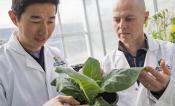
Crop genetic benefit two fold thanks to algae
Alge has long been known to be one of natures greatest carbon sinks, with some estimates being as high as 25% of carbon being captured into the biosphere by micro-organisms. Now researchers from The Australian National University (ANU) have engineered tiny carbon-capturing engines from blue-green algae into plants.
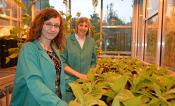
International Women’s Day 2019: Spotlight on Scientists of the RIPE project
As part of SIN USA’s celebration of International Women’s Day 2019, SIN Chicago profiled four early-career scientists from the RIPE project.

FUTURE-MINDS-QB to increase participation from underrepresented groups in biomedical data science and quantitative biology
The FUTURE-MINDS-QB program will provide rigorous training, a nurturing environment, and academic and professional mentorship for students from underrepresented ethnic, racial, and gender groups in quantitative biology and biomedical data sciences.
By: Siv Schwink || The Grainger College of Engineering Physics
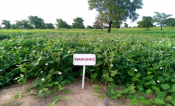
African Agriculural Technology Foudation (AATF) gets grant to monitor pod-borer resistant cowpea in Nigeria
The Australian Centre for International Agricultural Research has awarded AATF a grant of 250,000 Australian dollars for the dissemination and monitoring of the pod-borer resistant (PBR) cowpea variety in Nigeria.
By: AgroPages
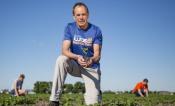
Stephen P. Long: Visionary, teacher, and doer
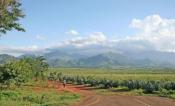
Better-bred crops could send global warming out to space
Scientists have used computer models to imagine a world where crops are specially bred to reflect away more light and heat, without compromising productivity.

Illinois biologists power up plant productivity
The BTN LiveBIG campaign is more than school or sports, it is the stories and the impact of innovation, research, and inspiration from all over the conference to make you proud to be apart of the Big Ten.
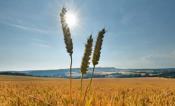
How can we feed 11 billion people?
The challenge to produce enough food to feed our growing population.
By: BBC World Service | The Inquiry
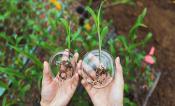
How we can adapt plants to save our planet
In their Follow the Food episode, BBC World News features the RIPE project and our central mission in addressing food insecurity.
By: James Wong || BBC World News

Planet Hunger: Inside the Global Food Crisis
Putin — and greedy CEOs — are already putting 20 million people on the brink of starvation. If we don’t make big changes now, we will face mass food shortages.
By: Jeff Goodell || Rolling Stone

Lighter colored upper leaves may be crop ‘photosynthesis hack’
Researchers are determining ways to boost crop production through expanding benefits of photosynthesis and understanding how plants react with light.
Source: Farm Futures
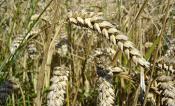
Engineering Photosynthesis
There’s some bad news, followed by good news, but partially countered by further bad news. The bad news is that our population is growing, and therefore our food requirements, and yet we are approaching the limits of our ability to increase crop yield with cultivation alone.

Tuning up photosynthesis to feed the world
An international team is working to tune-up photosynthesis in our most important crops to increase worldwide food productivity.
By: Bill Gates || Gates Notes

FAMINE FIGHTERS: From the lab to the field, U of I crop scientists are engineering a new solution to world hunger
Featuring RIPE Director Stephen Long and the RIPE project in the lead article in this quarter's Illinois Alumni Magazine, writer Ryan Ross shares the story of how our crop scientists are engineering a new solution to world hunger.
By: Ryan A. Ross || Illinois Alumni Magazine
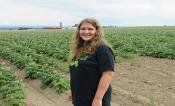
IGB Profile: Victoria Kramer
A feature on the journey of RIPE Field and Greenhouse Technician Victoria Kramer, who was born at 34 weeks and has since been diagnosed with vision and speech issues, autism, and cerebral palsy.
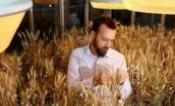
Future fare tipped to be GM, GE, ‘organic’ or none as shortages compound
One of the longest running, loudest and bitterest debates about food in modern times centres on the relative virtues of genetically modified and organic crops.
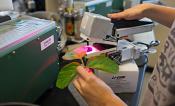
Scientists have 'hacked photosynthesis' in search of more productive crops
There's a big molecule, a protein, inside the leaves of most plants. It's called Rubisco.
By: Dan Charles | National Public Radio (NPR)

Research Park plans greenhouse for dynamic agriculture project
A group from the University and the Bill & Melinda Gates Foundation will break ground on a new greenhouse in Research Park.

Johannes Kromdijk awarded SEB President’s Medal
The SEB President’s Medals are awarded annually to young scientists of outstanding merit.
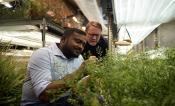
The underappreciated role of pods and siliques to developing seeds
Research overseen by RIPE's Doug Allen discovered that plant pods support seed development and higher yields, playing a significant role in photosynthesis. Their work was recently published in Science Advances.
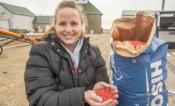
21st Show: What does genetically modified mean?
What does it mean when we say that a plant is genetically modified?
By: Niala Boodhoo, Christine Herman, Phillip Kisubika and Sean Neumann | 21st Show
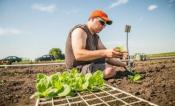
Scientists improve on photosynthesis by genetically engineering plants
Ever since Thomas Malthus issued his dire prediction in 1789 that population growth would always exceed food supply, scientists have worked to prove him wrong.
By: Julia Rosen | Los Angeles Times
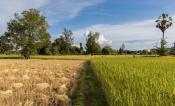
The Golden Revolution
With the famed Green Revolution running out of puff, scientists are working on a new Golden Revolution that will deliver a step-change in agricultural output.
By: Ben Long || Rural Business

USDA's Agricultural Research Service Honors Scientists of the Year
For her outstanding contributions to research on crop responses to global climate change, Agricultural Research Service (ARS) scientist Lisa A. Ainsworth is the agency's Distinguished Senior Research Scientist of the Year for 2021.
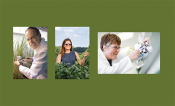
Three RIPE researchers recognized on 2023 ‘Highly Cited’ list
A trio of researchers for the Realizing Increased Photosynthetic Efficiency (RIPE) Project have been named to the 2023 Clarivate Analytics Highly Cited Researchers list. The list recognizes research scientists and social scientists who have demonstrated exceptional influence – reflected through their publication of multiple papers frequently cited by their peers during the last decade. RIPE’s Steve Long, Lisa Ainsworth, and Tracy Lawson were all selected to this year’s list.
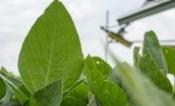
Adapting plants to global change
How do you feed 7 billion people? How do you grow that much food? That’s the question that confronts plant biologists. As the world population continues to grow, and change, researchers like RIPE Director Stephen Long are looking for more ways to grow more food, more quickly.
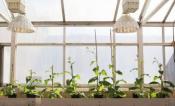
Engineered plants without photorespiration ‘glitch’ could help feed millions in coming decades
“With changing diets, increased urbanization—70 percent of world population by 2050—and the estimated 9 to 11 billion people that will be living by the second half of this century, it is estimated that food production needs to increase by as much as 70-100 percent to supply enough food to meet demand. ” South is one of the researchers who has made what could be a major breakthrough in boosting plant production.

Study shines light on full potential of soybeans
Komorebi is a Japanese word that describes how light filters through leaves — creating shifting, dappled “sunflecks” that illustrate plants’ ever-changing light environment. Crops harness light energy to fix carbon dioxide into food via photosynthesis.

41st Annual Telly Awards
Earlier this year, the RIPE team and the University of Illinois’ Video Services media team partnered up to create a trailer that told the story of our project’s purpose and mission, earning us the Gold Telly Award in the General: Not-For-Profit category.

From São João dos Patos to international scientist: Lauana's journey in search of knowledge and transformation
A newspaper in Lauana Pereira de Oliveira's native Brazil wrote an article about her academic journey that has led to her becoming a member of the RIPE team!
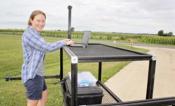
U of I crop research moves at light speed with FRED, WILMA
Don’t let the names fool you; FRED and WILMA are anything but Stone Age. FRED (field roving evaluation device) and partner WILMA (wagon for the investigation of leaves using multispectral analysis) to collectively gather much more information much faster than individual scientists clipping light sensors on leaves one at a time.
By: Kay Shipman | FarmWeek
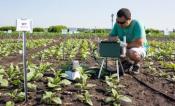
Plants botch photosynthesis 20% of the time. Fixing that could change agriculture
Our oxygen-rich air is confusing as hell to a plant.

Scientists unlocking heat-tolerant wheat
Researchers working on molecular-level responses in crops have taken a step closer to their goal of producing heat-tolerant wheat.
By: Katy Askew || FoodNavigator
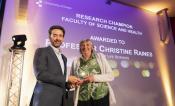
Christine Raines and Life Sciences Technical Team recognized at Essex’s Celebrating Excellence in Research and Impact Awards
University of Essex's Christine Raines was recognized as Research Champion for her outstanding work on improving photosynthesis in crops.
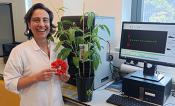
Researchers adopt approach for more ethical plant research
RIPE researchers at Lancaster University have adopted a technique rarely used in plant science to generate antibodies without sacrificing any animals. The work was detailed in a chapter of the recently released book, Photosynthesis: Methods and Protocols.
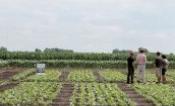
Research seeks solutions for climate change, hunger
Researchers at the University of Illinois are taking the basics of photosynthesis miles farther in Urbana-Champaign test plots and greenhouses — intervening in the process, through which plants use sunlight to produce energy, to create higher yields.
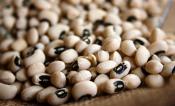
As Nigeria makes final move to commercialise Bt cowpea
After nine years of intensive trials of the Bacillus thuringiences (Bt) cowpea, Nigeria finally begins the final processes towards commercialisation.
By: Leadership, a Nigerian newspaper
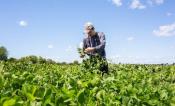
From the lab to the field, agriculture seeks to adapt to a warming world
Researchers and innovators are looking at more resilient crops and farm animals to adapt to a world with rising temperatures and at-risk food supplies.
By: Jim Robbins || YaleEnvironment360
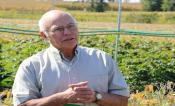
Ort awarded Jalal Aliyev Lecture Scholarship
At the recent International Congress on Photosynthesis, RIPE Deputy Director Don Ort was honored with the Jalal Aliyev Lecture Scholarship from the International Society of Photosynthesis Research.
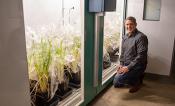
Carl Bernacchi helping raise the bar for agriculture climate research at Illinois
A long-time Illinois scientist has helped raise the agriculture profile of the University of Illinois. Bernacchi’s leadership within the Agroecosystem Sustainability Center and its collaborative effort has proven valuable as the team tackles global climate issues.

Science is more than labcoats: Clearing plant bottlenecks to feed the world with Katherine Meacham
You may be aware of bottlenecks in your work environment, but did you know that even plants have bottlenecks? What if there was a productivity coach for plants? Someone who could give them all of the secrets to being faster, greener and more productive? Someone who could whisper secrets into plant DNA so that they could transform sunlight into a bigger, better plant self…to be eaten by humans of course.
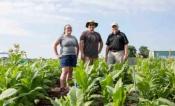
Can hacking plants feed the world? The research looks good
Plants are good at what they do — turning sunlight into food. However, some researchers have found the leaf world could improve, and that could have a major effect on the world’s growing population.
By: Leadership, a Nigerian newspaper

Researchers resolve two photosynthetic bottlenecks which can boost plant productivity by 27 percent
According to a new study published in Nature Plants, scientists from the University of Essex have resolved two major photosynthetic bottlenecks to boost plant productivity by 27% in real-world field conditions.
By: Atomstalk
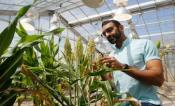
Dhruv Patel is daring plants to take a risk
Dhruv Patel is using gene editing tools to research photosynthesis, a process he first noticed in the parking lot of the Los Angeles motel his family managed.
By: Nicholas Karaviolas || Alliance for Science

Prominent global change scientist joins crop sciences, plant biology at Illinois
Globally recognized as one of the most influential modern scientists, RIPE Deputy Director Lisa Ainsworth has been named Professor and C.A. Ewing Chair of Crop Physiology in the Department of Crop Sciences and the Department of Plant Biology at the University of Illinois Urbana-Champaign.
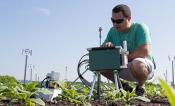
Helping plants remove natural toxins could boost crop yields by 47 percent
Can you imagine the entire population of the United States, Canada, Mexico, Brazil, the United Kingdom and France going hungry? You don’t need to imagine.
By: Paul South || The Conversation
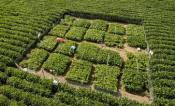
Illinois research combats food insecurity
Established in 2012, RIPE was created to engineer plants to help solve food insecurity. Since it began, it has received more than $70 million in funding.
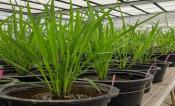
Flag leaves could help top off photosynthetic performance in rice
A team from the University of Illinois and the International Rice Research Institute (IRRI) found that some flag leaves of different varieties of rice transform light and carbon dioxide into carbohydrates better than others.
By: Apple News
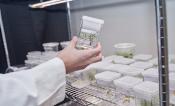
To fight climate change, a biotech firm has genetically engineered a very peppy poplar
RIPE Deputy Director Don Ort was recently featured in Science Magazine’s article on a California biotech company’s aim to create fast-growing trees that can rapidly soak up atmospheric CO2 to fight climate change.
By: Gabriel Popkin || Science

Long/Ort step back from RIPE leadership roles they helped create
After decades of impactful and prolific research, two photosynthesis trailblazers are passing the torch, Stephen Long and Donald Ort are retiring from their RIPE project leadership roles.

The plant whisperer
A famine crisis is looming. Stephen Long's work aims to feed the masses by supercharging the plants we eat.
By: Duncan Greere | BBC Focus Magazine
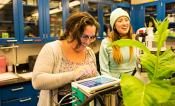
Hacking photosynthesis to re-engineer crop plants and feed the world
The next 'green revolution' will necessitate a radical redesign of how plants work.
By: Quirks & Quarks | CBC Radio

Improved agricultural technologies could help meet food security and climate change emergencies
A team of scientists proposes transformations to land management and agronomic practices to remove CO2 from the atmosphere and mitigate climate change.
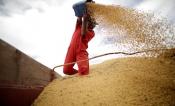
Scientists Boost Crop Performance by Engineering a Better Leaf
Researchers increased yield in soy plants by making them better at photosynthesis, the process that powers life. The findings hold promise for feeding a warming world.
By: Raymond Zhong and Clare Toeniskoetter || The New York Times
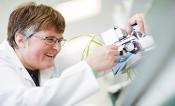
Lawson brings renowned plant science expertise to Illinois
Tracy Lawson's fascination with plants started as a child on a farm in England and recently brought the globally recognized expert in plant biology across the pond to Illinois! One of the university's newest faculty members talks about her research and what she's looking forward to most in this new feature!

The photosynthesis fix
As world food needs rise, so does the need for faster, more efficient plant growth. Bypassing an error-prone enzyme is one way to do it.
By: Rachel Ehrenberg | Knowable Magazine

This Week in Science Podcast
Australian scientists have managed to combine a CO2-eating carboxysome from blue-green algae with the cells of crop plants in the hopes that yields will eventually increase some 60%.
By: Kirsten Sanford | This Week in Science Podcast
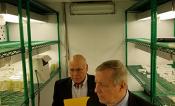
Senator Durbin calls for more research funding after touring RIPE project
U.S. Senator Dick Durbin visited the RIPE project and said he hopes to increase federal funding for scientific research.
By: Jim Meadows | Illinois Public Media
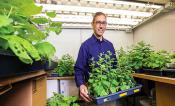
ORHS grad's research might boost food production
Kris Niyogi, an Oak Ridge High School graduate, led more than 10 years of research at Berkeley, Calif., that resulted in explanations of how green plants protect themselves from excess sunlight. The work earned him election in 2016 to the National Academy of Sciences.
By: Carolyn Krause || The Oak Ridger

Wealthy Nations Must Support Africa in the Face of Famine and Climate Change, Says Bill Gates
In TIME Magazine, Bill Gates gives a brief overview of RIPE's innovative work with soybeans that lead to better quality seeds.
By: Aryn Baker || TIME
